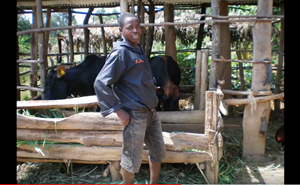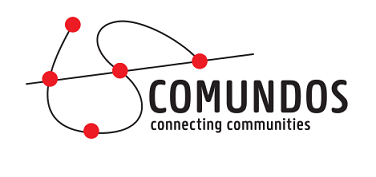A comparison between traditional and modern cattle farming
In traditional cattle farming, the cows were a local breed. Nowadays, however, there is a new ‘modern’ breed of cow. The indigenous cows are small. But the pure-breed modern cows are larger and more productive than the traditional ones. As the indigenous cattle move about the land, they destroy the fields, leading to clashes between the crop planters and cattle farmers. These tensions can be avoided by housing the cows in barns.


However, the modern farmer is useful in the struggle against hunger.
Thank you!
This English translation has been possible thanks to the PerMondo project: Free translation of websites and documents for non-profit organisations. A project managed by Mondo Agit. Translator: Andrew Christou.
A gift for Comundos
Over the years, Comundos has helped remote communities around the world by teaching critical thinking, media literacy and the use of communication technology.
To do this effectively, we need your support for computers, translations, courses and social media management.
Thank you .
BE11 1030 2973 8248




